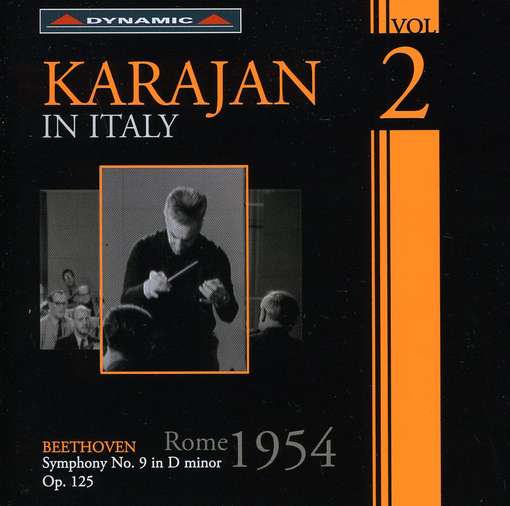Logowanie
Dziś nikt już tak genialnie nie jazzuje!
Bobby Hutcherson, Joe Sample
San Francisco
SHM-CD/SACD - NOWY FORMAT - DŻWIĘK TAK CZYSTY, JAK Z CZASU WIELKIEGO WYBUCHU!
Wayne Shorter, Freddie Hubbard, Herbie Hancock, Ron Carter, Elvin Jones
Speak no evil
UHQCD - dotknij Oryginału - MQA (Master Quality Authenticated)
Chesky! Niezmiennie perfekcyjny
Winylowy niezbędnik
ClearAudio
Double Matrix Professional - Sonic
najbardziej inteligentna i skuteczna pralka do płyt winylowych wszelkiego typu - całkowicie automatyczna
BEETHOVEN, Teresa Stich-Randall, Hilde Rossel-Majdan, Waldemar Kmentt, Gottlob Frick, Orchestra Sinfonica e Coro di Roma della RAI, Herbert von Karajan
Karajan in Italy - Vol.2 - Symphony No. 9
- Herbert von Karajan - conductor
- Orchestra Sinfonica e Coro di Roma della RAI - orchestra
- Teresa Stich-Randall - soprano
- Hilde Rossel-Majdan - contralto
- Waldemar Kmentt - tenor
- Gottlob Frick - bass
- BEETHOVEN
Karajan was unquestionably one of the most charismatic conductors of the 20th century, and of this the live recording of Beethoven’s Ninth Symphony made on 4th December 1954 with the symphonic and choral groups of the RAI in Rome is an eloquent testimony. Karajan possessed an exceptional capacity for having any orchestra play in the same way, and we can safely say that in terms of precision, intensity and beauty of sound his performance with the RAI Symphony Orchestra in Rome is in no way inferior to the version he recorded with the Philharmonia a few months later (July 1955). The Symphonic Chorus of the Rome RAI, directed by Nino Antonellini, gives a very worthy showing in the final Ode to Joy, and has nothing to envy in comparison with vocal ensembles of greater fame and prestige. The vocal cast, including Teresa Stich-Randall, Hilde RÖssel-Majdan, Waldemar Kmentt and Gottlob Frick, is well-balanced and of excellent quality; compared to the vocal cast for the EMI recording of 1955 (Schwarzkopf, HÖffgen, Haefliger, Edelmann), the four voices in the Rome recording cannot vaunt the presence of a soprano of superior calibre like Schwarzkopf, yet in compensation the bass Gottlob Frick sounds far more convincing than the mediocre Otto Edelmann of the EMI edition, whose performance is the only real weak point in an otherwise memorable recording.


































